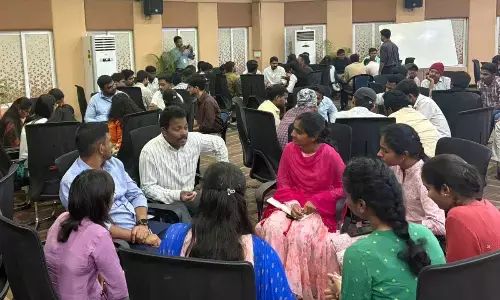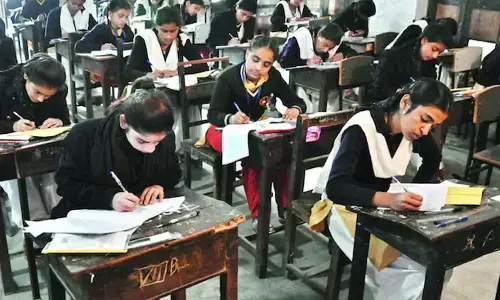Four-year-old kids are as overconfident as bankers

Researchers have found that children as young as four have the same levels of overconfidence as business executives, bankers and physicians when it comes to taking risks.
Researchers have found that children as young as four have the same levels of overconfidence as business executives, bankers and physicians when it comes to taking risks.
"Much of our knowledge on judgment and decision-making is based on adult participants but there is no reason to believe that humans only develop such an omnipresent cognitive illusion once we reach adulthood," said study author Dr Dominik Piehlmaier from the University of Sussex in the UK.
"My findings indicate that effective interventions that increase an individual's knowledge about their own knowledge and its boundaries might be needed to target much younger individuals if one wants to efficiently calibrate a person's irrational confidence," Piehlmaier added.
In the study, published in the journal Scientific Reports, children were asked to play a card game known as the Children's Gambling Task where they choose cards from one of two packs.
The card is then turned over to reveal how many stickers the participant has won and lost. One pack had cards with significantly higher wins and losses than the other.
At intervals, children had to decide whether they thought they would win more, about the same, or fewer stickers than previously in the game.
Each participant started off with four stickers after the initial six practice trials. On average, every participant gained 0.3 stickers per turn and left the game with an average of 6.67 stickers, ranging from zero to 33.
The study showed that more than 70 per cent of four-year-olds and half of all five and six-year-olds were overconfident in their expectations after playing ten turns and six practice trials.
The children played more than 60 turns and saw their payoff balance rose and fell, yet every third child still thought that they could do better than they had done in the previous 50 turns.
According to the researchers, the Children's Gambling Task closely resembles a very simplified version of the financial markets with relatively safe options providing low but steady average return rates and highly risky assets that promise much higher short-term gains with a catastrophic long-term yield.
The finding that overconfidence is persistent even in the face of own shortcomings mirrors results from previous studies that looked at the performance of investors.
Overconfidence is widely seen as a male trait but the study also had interesting findings when it came to the general performance of boys and girls.
In general, girls outperformed boys by an average of 2.87 stickers thanks to a less high-risk strategy of choosing relatively more safe cards which offered smaller but more sustainable gains.
"This indicates that girls overestimate their abilities if they have a winning streak and underestimate themselves whenever they lose a few times in a row," the researchers noted.











